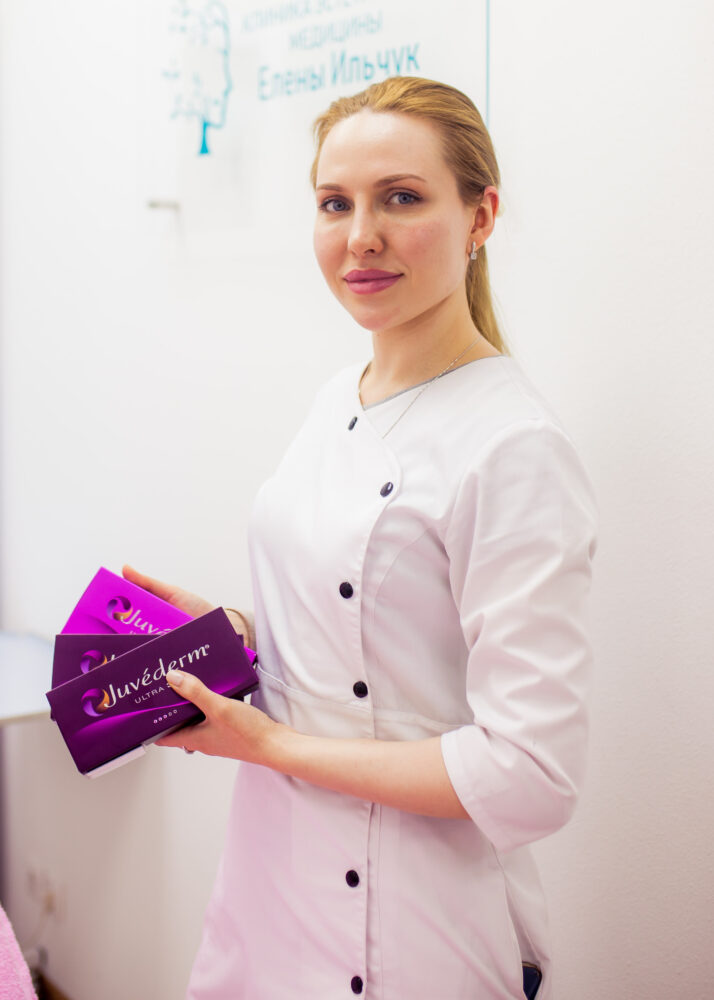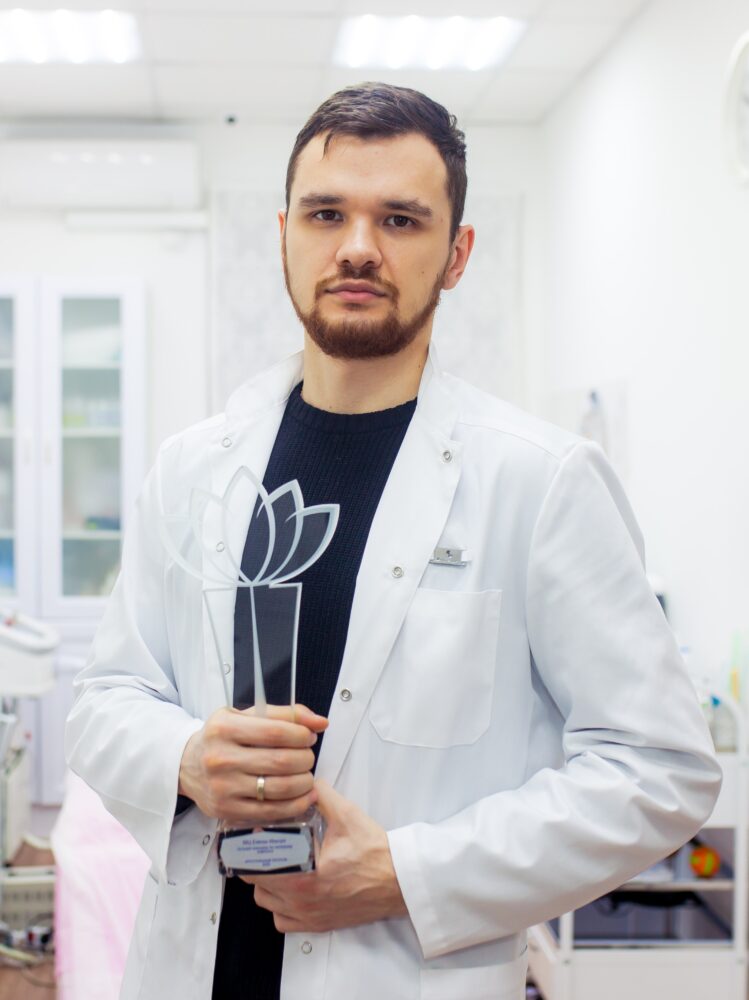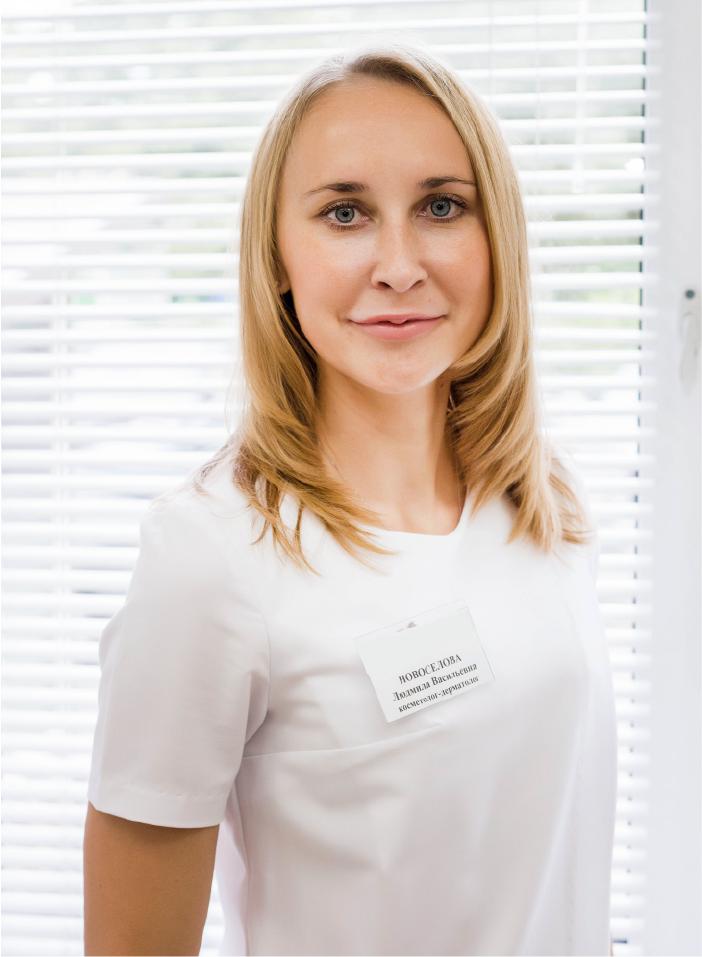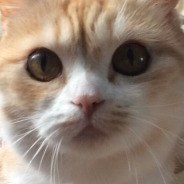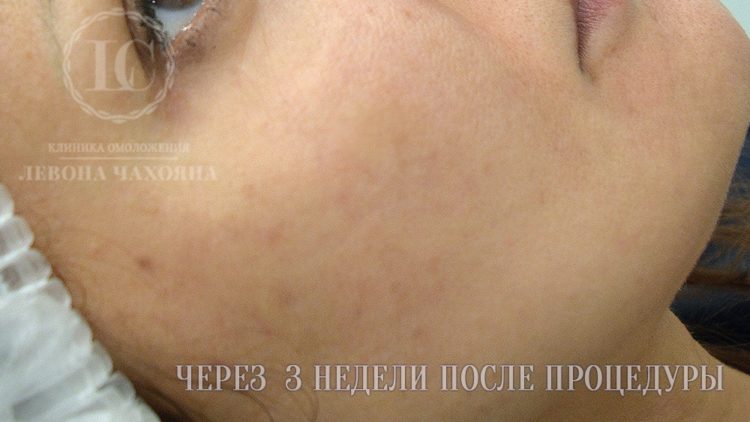Key points
The IPL treatment targets a variety of skin imperfections. After the photo rejuvenation treatment, the metabolic and regenerative processes in the cells are boosted. The result is already visible after the first session!
IPL therapy is the most effective way to fight the signs of photoageing.
It is recommended to undergo photo rejuvenation every autumn or winter and then the sun won't be able to add wrinkles, age spots and vascular stars to your skin.
Pros and cons of the procedure IPL
Photorejuvenation treatments and their variants
The availability of two laser devices and a wide range of exposure parameters during laser photo rejuvenation procedures at our clinic allows us to selectively target the skin structures concerned, without harming the surrounding tissues.
By varying the duration of the light pulse and its energy, it is possible to affect different skin structures.
Two types of photorejuvenation are distinguished in this regard.
PHOTOMOD type I.
Both ultra-short and long pulses of high-intensity IPL light are used. With this type of treatment, two lasers are used at the same time, so pigmented lesions such as melanin or blood vessels, i.e. oxyhemoglobin, are affected to a greater extent.
This technology is used to remove any pigment spots, couperose, rosacea, abnormally dilated blood vessels on the wings of the nose, chin and cheeks.
PHOTO LIFTING type II - PHOTOLIFTING.
In this case, ultrashort wavelengths of IPLs are used. These are more effective in heating the intercellular substance, causing active transformation of existing collagen and stimulating the formation of new collagen.
In this way, a lifting (facelift) effect is achieved - the skin looks firmer, its tone improves, its density increases, and the complexion becomes brighter, fresher and healthier.
Opinions/feedback from cosmetologists
IPL phototherapy has no effect on internal organs and no side effects.
- Avoid vigorous sporting activities, sunbathing, sunbeds, baths and swimming pools
- avoid using skin-traumatic scrubs and peels
- avoid the use of alcohol
- Always use a cream with a high level of SPF protection before going outdoors
The number of treatments required to remove pigmented and vascular lesions is determined by the doctor on the basis of the depth and size of the pigmented and vascular lesions. Usually 1-3 sessions are sufficient to completely remove the pigmentation and vessels.
If the aim of phototherapy is to reverse the effects of photoageing and prevent age-related changes, an average of 4-6 treatments is required.
Opinion of authoritative foreign sources on IPL
Using the appropriate IPL parameters with special cut-off filters, dark and flat senile lentigines can be effectively treated with a small number of treatments. On the other hand, a reduction of fine wrinkles on the back has been seen, but more finesse is required in how to apply IPL and decide on the number of treatments. Further research is needed, but in general it can be said that IPL is an effective choice for hand rejuvenation.
Q&A
The laser method of skin photorejuvenation is based on the mechanism of selective photothermolysis, which is achieved by heating biological target chromophores under the influence of IPL high-intensity pulsed light of a given wavelength and intensity and their subsequent destruction.
This has the following effects:
- Cell proliferation is stimulated.
- Biochemical processes in the affected area are activated.
- Pigment build-up is broken down, eliminating pigment spots and leaving the skin lighter in colour.
- Fibroblast activity is activated, resulting in increased production of collagen and elastin.
- Pathologically dilated blood vessels are coagulated (sealed) or destroyed.
- Pre-cancerous skin changes;
- A history of malignant neoplasms;
- Exacerbation of dermatological diseases, including herpes virus infections;
- Damage to the skin in the treatment area;
- Endocrine pathology, especially when decompensated, including diabetes mellitus;
- Connective tissue diseases;
- Pregnancy and the breastfeeding period;
- Need to take photosensitizers, including some types of antibiotics;
- Epilepsy;
- Coagulopathies, including a tendency to bleed or taking anticoagulants;
- A history of photodermatosis;
- Fresh tan (artificial or natural);
- Acute respiratory infections, influenza;
- Herpes in the acute stage;
- Increased light sensitivity;
- Cancer;
- Tendency to hyperpigmentation.
- Lightening of freckles and age spots;
- Elimination of dilated subcutaneous vessels;
- Smoothes out expression lines, wrinkles and fine lines;
- Improves skin tone and contractility;
- Lifting weak and 'empty' skin;
- Acne (acne disease) treatment;
- Correction of stagnant scars and post-acne marks;
- Softening of the scar tissue of mild to moderate scars;
- Narrowing of the pores;
- Normalisation of sebum production.
The parameters of the equipment are set individually, depending on the patient's skin type and individual objectives.
- Elimination of vascular defects - couperose, haemangiomas, telangiectasias.
- Rosacea treatment.
- Eliminates age-related skin changes - wrinkles, deformations of facial contours. The method can be used even on young skin, with the elimination of fine lines and wrinkles that occur in the fine-wrinkle type of ageing.
- The elimination of age spots.
- Eliminates enlarged pores.
- Corrects excessive greasiness of the skin.
- Treatment of post-acne - stagnant spots.
Please note! To get maximum results, you should perform a course of photo rejuvenation treatments every 14-30 days.
The following modes are recommended:
- Lifting - 4-5 treatments.
- Removal of vascular lesions - 2-4 procedures.
- Removal of age spots - 1 or 2 treatments.
- Treatment of rosacea - 6 treatments or more until the effect is achieved.
- Treatment of acne and stagnant spots after acne - 4-6 treatments.
Feedback from private users
It is advisable not to use your make-up for the first 12 hours, but I sometimes break the rule if I really need to.
Unfortunately, nothing has been invented as effective as pulsed IPLs to date. But even these have only a very slight effect, my couperose is still with me and I don't have any visible effects from the treatment. I have been having these treatments for a year, once a month. I have had a total of 7 treatments with Palomar IPL therapy.
Palomar IPL therapy (pulsed light) I have been doing for a year and I have no visible effect.
The first week afterwards, my skin was perfect, apart from the crusts, but after a week the pimple spots turned red again.
To sum up: if you want to remove freckles and pigmentation, this procedure is just for you, but if bruises and pimple marks, alas...
I've had my freckles and age spots removed and I'm not going to have that procedure again. I will look for ways to eradicate acne marks.
My most problematic area is the right back of my nose, as you can see it's a little better after 3 treatments, but I was still hoping for a more noticeable result
Also, I have quite a few vascular spots above my lip (incidentally, a consequence of waxing), which for some reason, are the most difficult to remove.
My conclusion: the procedure is effective, but time-consuming and very expensive; I was hoping to get rid of my problem in a couple of times, but it didn't work
Prices
If you have pigment spots or "dirty" skin, the cost of rejuvenation of the entire face starts from 10,000 roubles.
If you have vascular lesions, it all depends on the area to be corrected: for example, vascular removal on the wings of the nose costs around 3,000 roubles, while vascular removal on the cheeks costs from 5,000 roubles.
Before and after photos
IPL
Men
Both women and men in their 20s are considered ideal patients for the photo rejuvenation treatment.
How the procedure is carried out
Facial photorejuvenation takes place on an outpatient basis. The patient is comfortably seated on a couch. Optics are worn to protect the eyes. If the periorbital area is to be covered, the patient covers their eyes.
The procedure follows the following algorithm:
- Skin cleansing and demake-up;
- Applicative anaesthesia (on request or subjective indications - e.g. low pain threshold or hypersensitivity of the skin);
- Application of a conductive gel to the surface of the skin;
- Direct treatment of the skin with the nozzle;
- Re-treatment (runs along the skin's power lines - the lines of minimum stretching).
When the handpiece comes into contact with the skin, the patient will feel a slight warmth and tingling sensation. The sensation may increase with repeated treatments (usually 2-3 "passes" around the perimeter of the face with the IPL tool are sufficient). However, there is no pronounced soreness.
After the treatment, there may be an increase in redness, but after a day the hyperaemia is completely neutralised. Photorejuvenation does not entail abundant and coarse peeling or crusting - this is its main advantage over classic laser resurfacing and laser peels.
No swelling or other side effects occur during the recovery process. You can therefore get back to your normal routine the very next day.
Rehabilitation period after facial photorejuvenation
There is no rehabilitation as such after photo rejuvenation. The skin does not require any specific care or treatment. The fine, even peeling that appears in the affected areas disappears on its own after 3-7 days. The process cannot be accelerated by using scrubs, let alone hands.
Complications after photo rejuvenation are extremely rare, and to protect against them, all you need to do is the following rules:
- Use of decorative and caring cosmetics with high SPF (at least 40-45) for 3-4 weeks, even in cold and overcast seasons;
- Refrain from sunbathing in a tanning bed or in the sun;
- Avoiding home and salon mechanical and chemical peels.
- In the first few days after photo rejuvenation, you should not go to a sauna or sauna.
Facial photorejuvenation has a minimum of restrictions. Contraindications include malignant tumours, severe organic and systemic pathologies in acute or decompensated stages, mental disorders, acute skin inflammations and infections, and fresh tanning. It is also better to postpone the procedure for pregnant women. Lactation can also be performed during lactation.
The natural processes of ageing plus photo ageing bring with them signs of ageing such as pigmentation (brown spots, "age spots"), spider veins and vascular changes manifested as skin redness and irritability; reduced skin elasticity and tone and skin dehydration. One way to correct these annoying changes is through IPL skin rejuvenation using pulsed light.
Photo-rejuvenation is based on the principle of applying light pulses of a specific wavelength from high-intensity light sources (IPLs) to the skin (dermis collagen, age spots) and vascular elements. The wavelength of the pulses emitted perfectly matches the haemoglobin of the damaged vessels and the pigment of the age spots.
In this process, the pigment or the damaged vessel is heated, destroyed and gradually disposed of by the skin cells, phagocytes, specially designed for this purpose.
This is not the only function of pulsed light; when applied to the dermis, the pulses trigger the synthesis by skin cells of the main proteins in the middle layer of the skin, the dermis - collagen and elastin, which are responsible for the firmness and elasticity of our skin.
In fact, photo rejuvenation has a holistic effect on all layers of the skin, stimulating collagen synthesis, removing pigmentation and correcting vascular disorders.
Conclusion
The procedure is aimed at eliminating various skin imperfections. After the photo rejuvenation treatment, the metabolic and regenerative processes in the cells are boosted. The results are already visible after the first session!


















